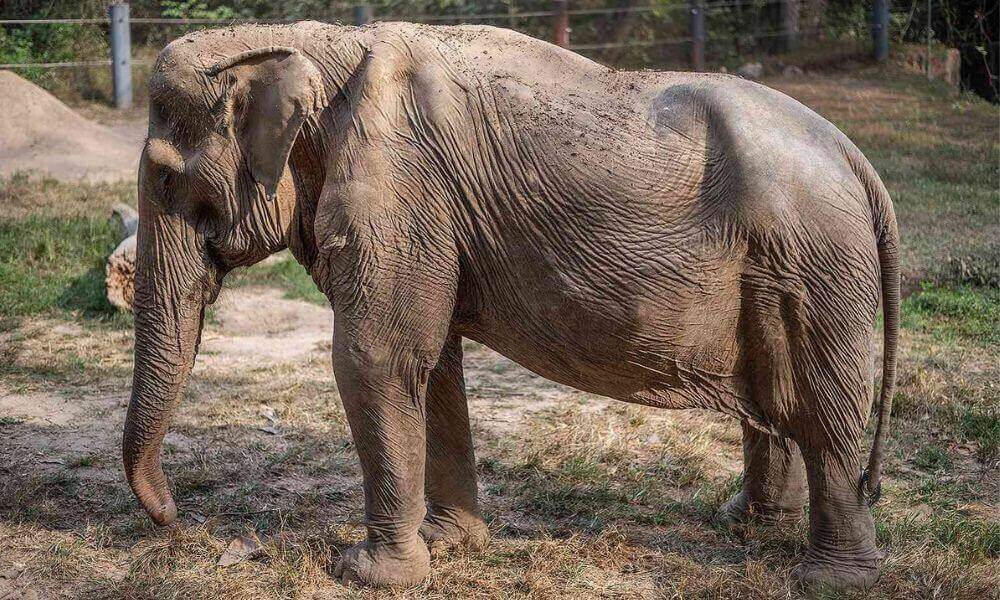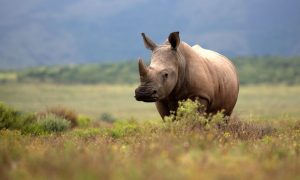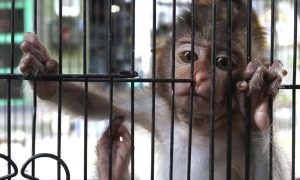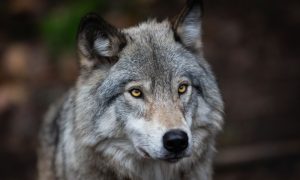UPDATE: This bill has passed third reading in the House of Commons, as well as a first reading in the House of Lords! We’ll continue to watch for developments. —Lady Freethinker Staff
*
A bill that would ban advertising within the UK to cruel tourist destinations that abuse and exploit animals abroad has unanimously passed a second reading and now is in the final stages in the House of Commons.
The bill, known as the Animals (Low-Welfare Activities Abroad) Bill, would prohibit the promotion of any animal acts or treatment abroad which, if committed on UK soil, would run afoul of the Animal Welfare Act of 2006. The bill also allows for enforcement action and penalties or prosecution of violations.
Getting to this hopeful point has taken a nearly 8-year campaign by numerous animal welfare activists, including nonprofit Save the Asian Elephants (STAE), whose founder Duncan McNair emphasized the widespread, bipartisan support for the bill.
McNair, a tireless advocate for Asian elephants, said the gentle but wild animals typically endure brutal violence during “training” for tourist interactions like elephant rides — including being ripped from their mothers at young ages, isolated, starved, and beaten with vicious bullhooks.
UK travel companies that promote these cruel attractions — as well as UK tourists who visit them, perhaps unaware of the cruel realities behind wild animal “tricks” — fuel the demand and the vicious cycle, McNair added.
Elephants aren’t the only victims. UK-based travel companies also are promoting harmful “experiences” abroad such as selfies with tiger cubs, swimming with dolphins, and canned hunting of lions (where lions trapped in enclosures are shot), McNair said.
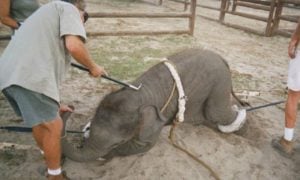
Elephant ‘training’ (Image Courtesy of STAE)
Common themes STAE researchers have noticed in the treatment of these animals taken from their wild homes include babies torn from mothers at early ages, animals who die in transit and trade, animals kept in unnatural environments and forced to perform atypical stunts, and the use of fear, pain, drugs, violence, and domination to control or “train” the animals to obey.
“This law stands now for any animal abused or exploited in tourism, anywhere in the world,” McNair told LFT. “That’s the enormous reach. It’s not a bill just for the UK. This is a bill that should be championed by every country that loves animals.”
MP Angela Richardson, the bill’s sponsor, noted 80 percent of her constituents in Guilford support banning cruel advertisements — as do other renowned welfare organizations, including the Royal Society for the Prevention of Cruelty to Animals (RSPCA) and World Animal Protection (WAP).
Richardson noted the government’s current action plan includes a statement noting the UK wants “to make sure that businesses do not benefit from selling attractions, activities, or experiences to tourists involving the unacceptable treatment of animals.”
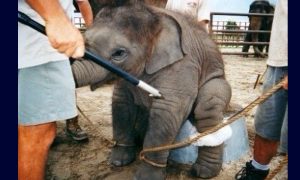
Elephant ‘training’ (Image Courtesy of STAE)
The bill, if passed, would steer tourists — and the tourism industry — to shift toward more compassionate offerings. Richardson specifically referenced the gruesome treatment of elephants during her comments.
“One cannot fail to be moved by the plight of these graceful animals subjected to barbaric treatment,” she said.
MP Luke Pollard, who previously worked for the Association of British Travel Agents, spoke in favor of the bill.
“It is clear that far too many people still do not regard the sale of tourism elements involving animals as something awful,” Pollard said. “Far too many animals involved with tourism do not enjoy a life well lived; in fact, they enjoy very little of their life, with much cruelty and pain involved.”
MP Scott Benton referenced wild animals being taken from their natural habitats and cruelly “trained” while MP Holly Lynch acknowledged big cats declawed and dolphins crammed into tiny tanks.
“It is easy to think of this as a problem far removed from the UK,” Lynch said. “But by advertising, promoting, and selling these experiences, usually to unknowing consumers, UK-based travel companies are complicit in the cruelty.”
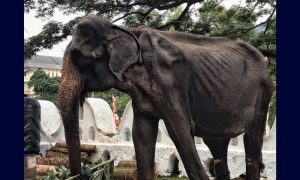
Emaciated elephant used in tourism till death (Image Courtesy of STAE)
Lynch noted that 1,250 UK-based travel companies still promote elephant encounters abroad.
McNair shared with Lady Freethinker the story of Pai Lin, a 71-year old female elephant whose spine was visibly deformed after at least 25 years in the logging and trekking industries and also being forced to carry up to six tourists at a time on her back.
“Thankfully, she’s in a sanctuary now, away from the horrors,” McNair said. “But many elephants are not like that. They die. I have seen the terrible suffering of these animals. These are things you never forget.”
Both Richardson and STAE Founder McNair also referenced safety risks for humans interacting with perpetually abused, wild animals — specifically the testimony of Helen Costigan, whose 20-year-old sister Andrea was gored to death after a brutalized elephant charged her at the Nong Nooch resort in Thailand in 2000.
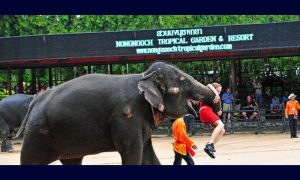
Nong Nooch Tropical Garden resort, Thailand, where Andrea Taylor was
killed (Image Courtesy of STAE)
STAE noted in a briefing submitted to members of Parliament that the venue is still actively promoted by at least 120 UK-based companies. The nonprofit also has independently documented at least 700 human deaths caused by elephants exploited in tourist “attractions” and at least 900 additional injuries — including crushed organs, broken limbs, and head injuries, McNair said.
The bill currently has the backing of the Department of Environment, Food, and Rural Affairs (DEFRA), whose Parliamentary Undersecretary Trudy Harrison applauded the bill’s progress.
“Any change we can make here in the UK to raise animal welfare standards across the globe is a positive,” Harrison said.
More than 1 million people have signed an official petition urging government officials to pass the legislation, while 32.8 million people have signed related petitions, McNair said.
The bill heads next to a report stage and third reading in the House of Commons. If passed, the House of Lords would need to approve and pass on the legislation for royal assent to the King, who ultimately signs bills into acts of Parliament.
Lady Freethinker supports passage of this lifesaving legislation and extends our deepest thanks to the tireless efforts STAE and other nonprofits relentlessly campaigning for this compassionate change for animals everywhere.
If you haven’t already, please sign STAE’s petition supporting this legislation!

